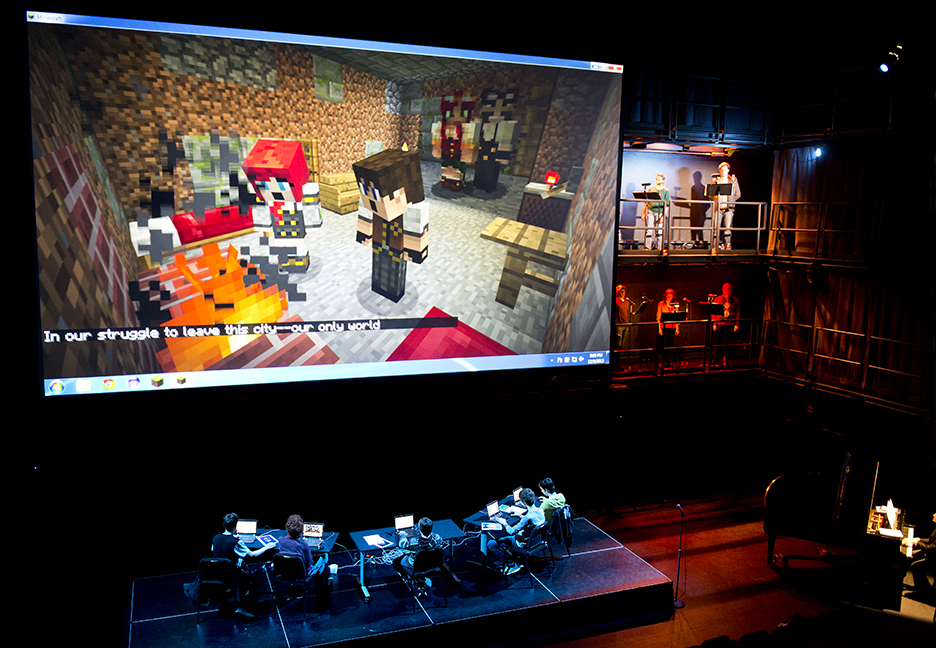How to Take Minecraft to Operatic Heights
December 15, 2016

Opera, as a highly complex artform, can teach skills in many areas beyond vocal virtuosity and musical composition: storytelling, character development, scene construction, choreography, stagecraft. Several years ago, I wanted to use the multifaceted nature of opera to create the kind of intensive art program that can be so effective in building creative confidence.
Staging an opera is expensive, of course, so I discussed technological options with one of my music department colleagues, Ivica Ico Bukvic. He suggested we adapt Minecraft, the popular video game that allows users to create their own avatars and intricate, three-dimensional worlds. Ico assured me that, if a technology we needed had not yet been invented, we could do the inventing. And OPERAcraft—a performance tool that merges opera and gaming—was born.
Using programming he created for his laptop orchestra, Ico modified Minecraft technology to allow the avatars more expressivity. He gave them arm gestures and animated their mouths to match the vocal movements of live opera singers. Through his coding wizardry, when an OPERAcraft performer sings complete words, the corresponding avatar’s mouth opens and closes. When the performer sings a sustained vowel, the avatar’s mouth shakes as if in vibrato.
A group of local high-school students created the world’s first Minecraft-based opera. They crafted the storyline, wrote the libretto, designed the avatars, built the virtual set, and staged the show. Virginia Tech graduate students joined me in managing the project, which required equal parts performance, design, and technology. Performing arts faculty directed the videography, virtual fights, and musical construction. Voice majors performed the score.
Then, in front of a live audience at the Moss Arts Center, OPERAcraft became a first-of-its-kind performance. With the virtual environment projected onto a giant screen, Mozart provided the musical score, high schoolers controlled the avatars, and undergraduates sang.
OPERAcraft provided our opera students with valuable artistic challenges. As singing actors, they’re used to using their bodies for expression. But the limitations of OPERAcraft inspired them to hone the inflections and intentionality behind the words. They learned to use vocal technique to become more expressive singers.
Our undergraduates witnessed how an interdisciplinary project can help younger students develop creative-thinking skills in a collaborative learning environment. By broadening accessibility to the arts and tapping creativity, we hope OPERAcraft can encourage even more people to learn and grow.
Ariana Wyatt, an assistant professor of voice in Virginia Tech’s School of Performing Arts, is an award-winning soprano who has performed in operas, concerts, and oratorios throughout the country.

This article appeared as part of “Creative Genius” in the 2016–2017 issue of Illumination.


